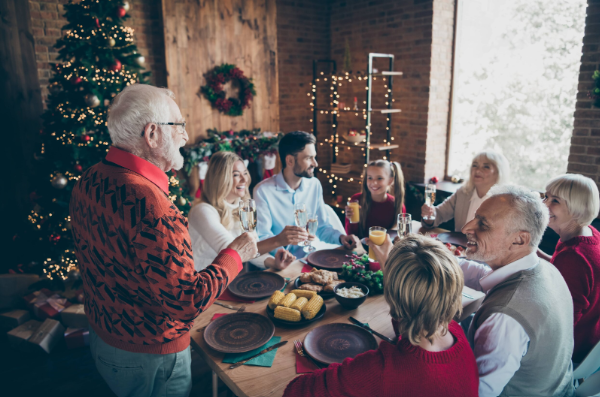The Power of Family Traditions: Why They Matter
Family traditions are the heart of what makes a family unique. They create a sense of belonging, strengthen bonds between family members, and provide a deep-rooted connection to heritage and values. Whether they are small daily rituals or large annual celebrations, traditions play a vital role in shaping a family’s identity and bringing generations together.
1. What Are Family Traditions?
Family traditions are repeated activities, customs, or rituals that a family engages in, often passed down through generations. These traditions can be:
- Cultural or Religious Traditions – Celebrating religious holidays, practicing specific cultural customs, or following sacred rituals.
- Seasonal or Holiday Traditions – Decorating a Christmas tree together, preparing a special meal for Thanksgiving, or lighting candles for Hanukkah.
- Daily or Weekly Rituals – Eating dinner together every night, a bedtime story routine, or Sunday morning pancake breakfasts.
- Milestone Traditions – Celebrating birthdays in a unique way, taking a family trip for anniversaries, or special graduation celebrations.
Traditions can be simple or elaborate, but what matters most is their consistency and the meaning they hold for the family.
2. Why Family Traditions Matter
- Strengthening Family Bonds – When families engage in traditions together, they create shared experiences that strengthen their connection. Spending time together in a meaningful way fosters closeness and helps build lasting relationships.
- Providing Stability and Security – Children thrive on routine and predictability. Family traditions give them a sense of security by providing structure in their lives, especially during difficult times.
- Passing Down Values and Heritage – Traditions are a way to preserve and pass on family values, culture, and history. They teach children about their roots and provide a sense of identity.
- Creating Lasting Memories – Many of the happiest childhood memories come from family traditions, whether it’s decorating the house for the holidays, making homemade gifts, or taking an annual vacation.
- Promoting Emotional Well-Being – Studies show that traditions contribute to emotional well-being by reducing stress and increasing feelings of happiness.
3. How to Create and Maintain Meaningful Family Traditions
- Start Small and Be Consistent – Even the simplest activities can become meaningful if done consistently, such as a special handshake before school or a weekly family game night.
- Adapt Traditions to Fit Your Family – Traditions should reflect your family’s values and interests. They can evolve as your family grows and changes.
- Get Everyone Involved – Traditions should be enjoyable for everyone. Let family members have input in creating or modifying traditions to keep them fun and engaging.
- Keep Traditions Fun and Meaningful – If a tradition starts feeling like an obligation rather than a joy, consider adjusting it to make it more enjoyable and stress-free.
- Embrace New Traditions – Families change over time, and so should traditions. Be open to starting new traditions that fit your current lifestyle.
4. Examples of Fun and Meaningful Family Traditions
Daily Traditions:
- Sharing a highs and lows moment at dinner (each person says one good and one challenging thing from their day).
- Reading a book together before bedtime.
- Writing notes or jokes in kids’ lunchboxes.
Weekly Traditions:
- Friday family movie or game night.
- Sunday morning pancakes or brunch.
- Taking a weekly family walk or nature hike.
Holiday Traditions:
- Decorating the house together for holidays.
- Watching a classic holiday movie as a family.
- Baking and decorating cookies with kids.
Special Occasion Traditions:
- First-day-of-school breakfast or photos.
- Making a birthday video or scrapbook each year.
- Writing letters to the future to open on a milestone birthday













